
Lokossa: The Heartbeat of Mono Department
Lokossa, the administrative capital of the Mono Department in Benin, offers a unique blend of cultural heritage and natural beauty. Nestled in the southern region of the country, it is a hidden gem that promises a tranquil yet enriching experience for its visitors. The city's vibrant markets, friendly locals, and traditional crafts make it a fascinating destination for those looking to immerse themselves in Benin's rich culture. One of the highlights of Lokossa is its proximity to Lake Ahémé, the second largest lake in Benin. The lake is perfect for fishing, bird-watching, and enjoying serene boat rides. The surrounding landscapes are lush and offer plenty of opportunities for nature walks and exploration. Visitors can also experience the local way of life by visiting the nearby villages, which are known for their warm hospitality and vibrant traditions. In addition to its natural attractions, Lokossa is home to several historical sites and cultural landmarks. The city has a rich history that is reflected in its architecture and local festivals. The annual Vodoun festival, which celebrates the traditional religion and practices of the region, is a must-see event that attracts visitors from all over the world. Lokossa's culinary scene is also worth exploring, with local dishes that tantalize the taste buds and offer a true taste of Beninese cuisine.
Local tips in Lokossa
- Visit the local markets early in the morning for the freshest produce and unique handicrafts.
- Take a guided boat tour on Lake Ahémé to fully appreciate its natural beauty and wildlife.
- Learn a few basic phrases in French, as it is the primary language spoken by locals.
- Don't miss the annual Vodoun festival to experience the vibrant local culture and traditions.
- Try the local cuisine, especially dishes made with fresh fish from Lake Ahémé.
Lokossa: The Heartbeat of Mono Department
Lokossa, the administrative capital of the Mono Department in Benin, offers a unique blend of cultural heritage and natural beauty. Nestled in the southern region of the country, it is a hidden gem that promises a tranquil yet enriching experience for its visitors. The city's vibrant markets, friendly locals, and traditional crafts make it a fascinating destination for those looking to immerse themselves in Benin's rich culture. One of the highlights of Lokossa is its proximity to Lake Ahémé, the second largest lake in Benin. The lake is perfect for fishing, bird-watching, and enjoying serene boat rides. The surrounding landscapes are lush and offer plenty of opportunities for nature walks and exploration. Visitors can also experience the local way of life by visiting the nearby villages, which are known for their warm hospitality and vibrant traditions. In addition to its natural attractions, Lokossa is home to several historical sites and cultural landmarks. The city has a rich history that is reflected in its architecture and local festivals. The annual Vodoun festival, which celebrates the traditional religion and practices of the region, is a must-see event that attracts visitors from all over the world. Lokossa's culinary scene is also worth exploring, with local dishes that tantalize the taste buds and offer a true taste of Beninese cuisine.
When is the best time to go to Lokossa?
Iconic landmarks you can’t miss
Place Publique De Lokossa
Experience the peaceful charm of Place Publique De Lokossa, a lush park in Lokossa perfect for relaxation, picnics, and enjoying local culture.
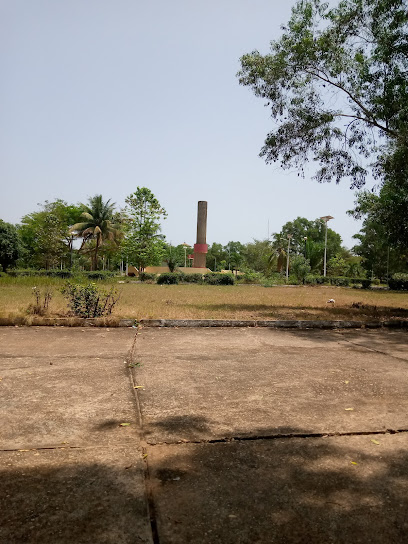
Hôtel Sous l'Iroko
Experience comfort and local charm at Hôtel Sous l'Iroko, your ideal retreat in Lokossa, Benin, perfect for exploring vibrant culture and scenic beauty.
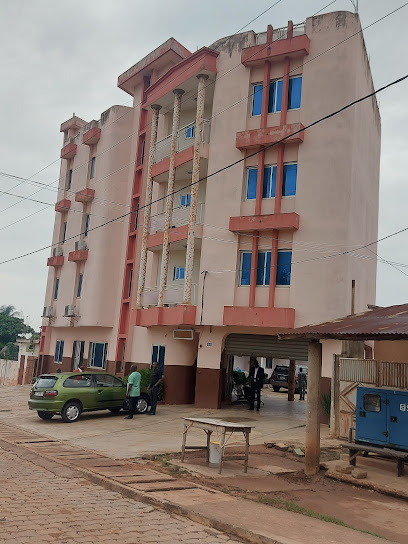
Memorial de Zoungbodji
Discover the Memorial de Zoungbodji in Ouidah, a tribute to Benin's rich cultural heritage and a profound reflection on history.
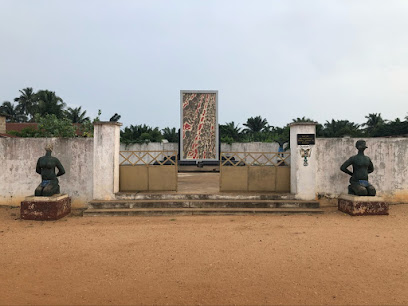
Préfecture de Lokossa
Discover Lokossa: The vibrant heart of Benin where local governance meets rich cultural experiences.
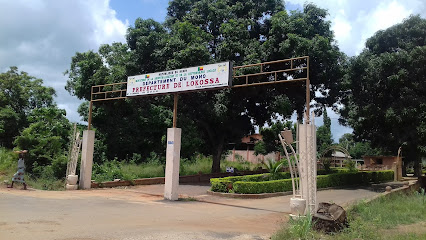
Arbre de l'oubli
Explore the Arbre de l'oubli in Ouidah, a poignant symbol of history and memory amidst the lush landscapes of Benin.
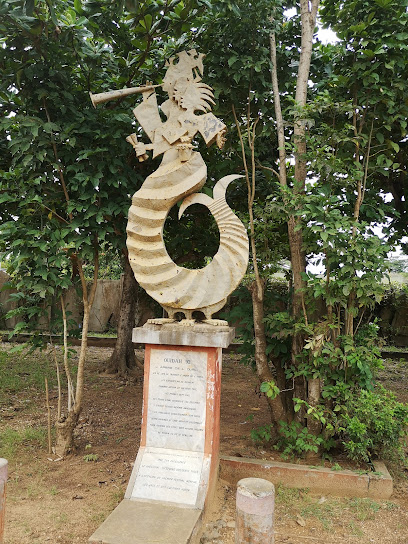
Arène culturelle de Lokossa
Uncover the vibrant cultural heritage of Lokossa at the Arène culturelle, a historical landmark showcasing local traditions and artistic expressions.

lokossa hounkpo bénin
Discover the breathtaking landscapes and rich cultural heritage of Lokossa Hounkpo, a premier hiking destination in Benin.

Unmissable attractions to see
Place du Souvenir, ex Place des Martyrs
Explore the rich history and cultural significance of Place du Souvenir, a historical landmark in Cotonou, Benin, and reflect on the nation's enduring spirit.
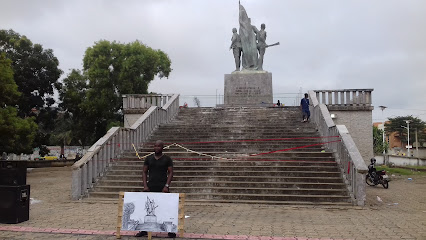
Route des peches
Experience the breathtaking beauty and vibrant culture of Route des Peches in Cotonou, a gem on Benin's coastline perfect for travelers seeking adventure and local charm.
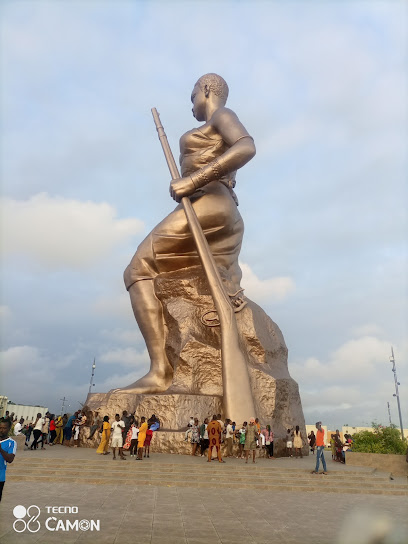
Sacred Forest
Experience the serenity and spiritual essence of the Sacred Forest in Ouidah, a lush park steeped in cultural significance and natural beauty.
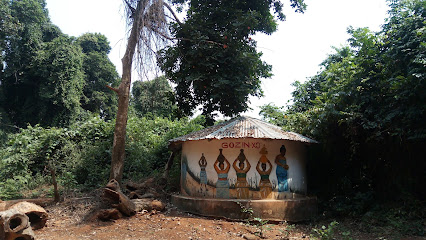
Place Publique De Lokossa
Experience the vibrant community spirit and lush landscapes at Place Publique De Lokossa, a serene park in the heart of Lokossa, Benin.
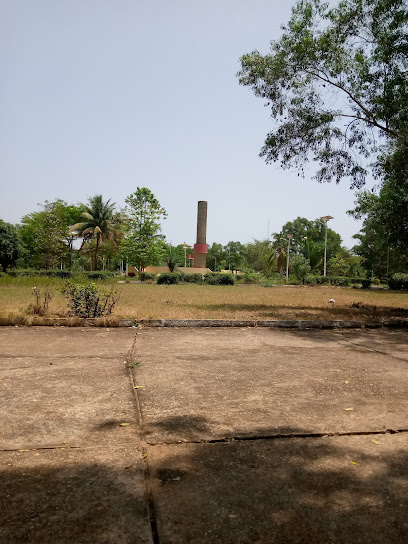
Memorial de Zoungbodji
Explore the rich cultural heritage at Memorial de Zoungbodji in Ouidah, a serene tribute to the region's historical significance.
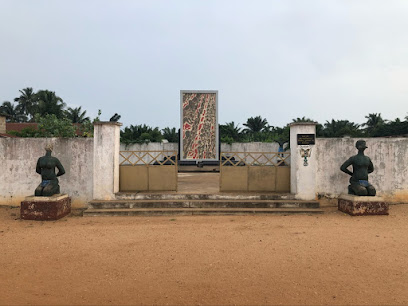
lokossa hounkpo bénin
Explore the breathtaking trails and rich biodiversity of Lokossa Hounkpo, Benin – a hiker's paradise awaiting discovery.

Essential places to dine
Buvette MDUR
Experience authentic Beninese flavors at Buvette MDUR – a hidden gem for food lovers in Lokossa.

Bar Restaurant Chez Adjovi
Discover the authentic taste of Benin at Bar Restaurant Chez Adjovi – where delicious meals meet friendly service in Lokossa.
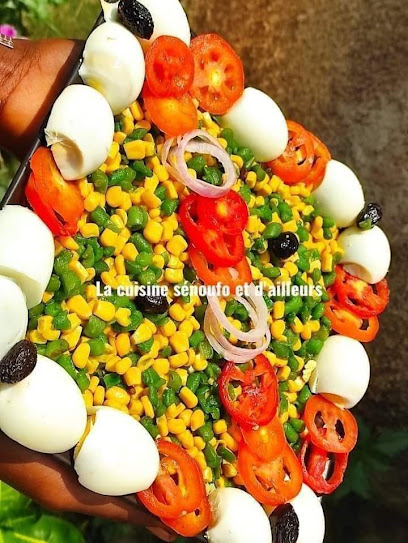
LE GOURMET
Savor authentic Beninese flavors at Le Gourmet in Lokossa - where local ingredients meet culinary creativity.
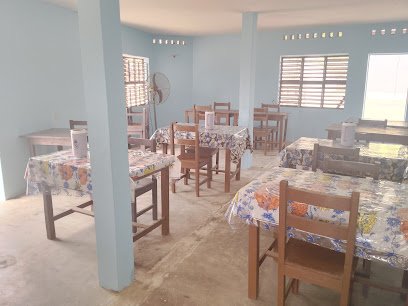
Restaurant Bar VIP R - Gratias
Experience authentic Beninese cuisine at Restaurant Bar VIP R - Gratias in Lokossa—where flavor meets tradition in a welcoming atmosphere.
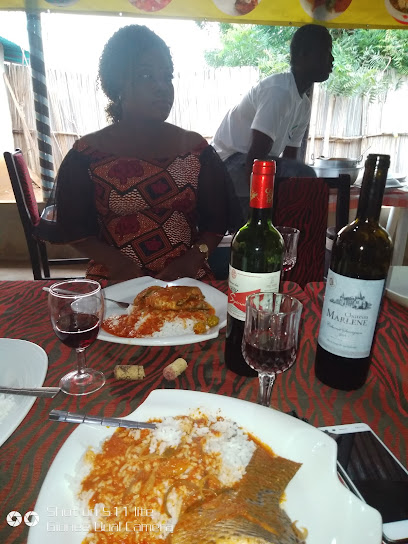
Restaurant Le Palais New Place
Experience the flavors of RN2 at Restaurant Le Palais New Place – where local cuisine meets warm hospitality.
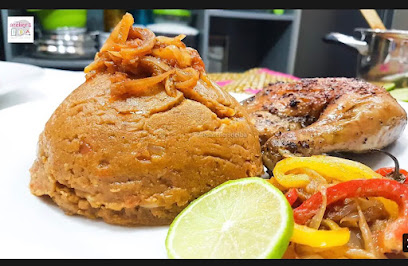
Africafoods
Discover authentic African cuisine at Africafoods in Lokossa - where tradition meets flavor in every dish.
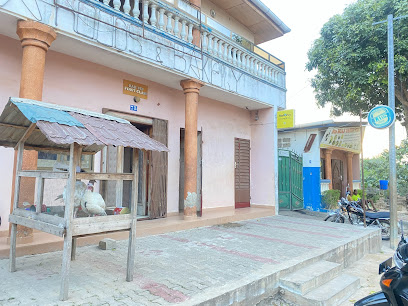
Maquis La Cave du Coin
Experience the best of Beninese cuisine at Maquis La Cave du Coin in Lokossa - where every dish tells a story.
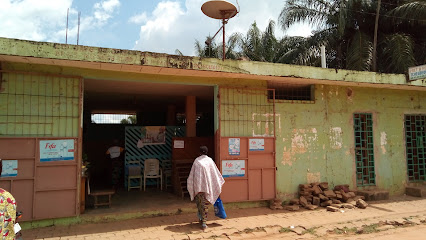
KAP SERVICES
Experience authentic Beninese cuisine at KAP Services in Lokossa – where every meal tells a story.
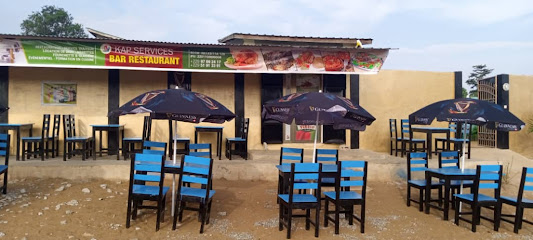
Bar Restaurant La Cachette
Experience authentic Beninese cuisine at Bar Restaurant La Cachette in Lokossa – where flavor meets tradition in every dish.
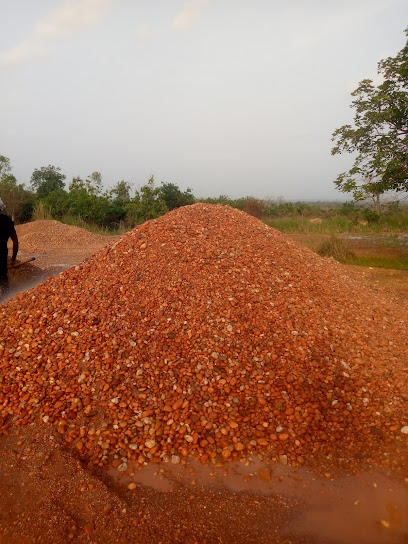
Les Délices de la Berge du Fleuve Mono
Discover authentic African cuisine at Les Délices de la Berge du Fleuve Mono in Athiémé, where every dish tells a story of tradition and flavor.
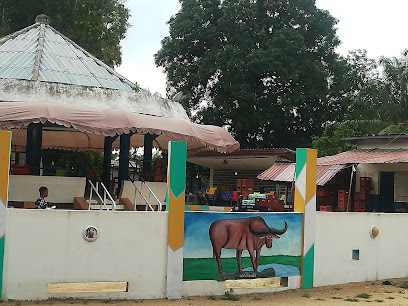
Restaurant Mme SOSSI
Discover authentic Beninese cuisine at Restaurant Mme SOSSI in Lokossa, where every dish tells a story.
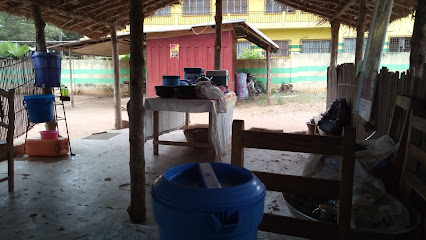
CHEZ AVE MARIA
Experience authentic West African cuisine at Chez Ave Maria in Lokossa - where every dish tells a story.
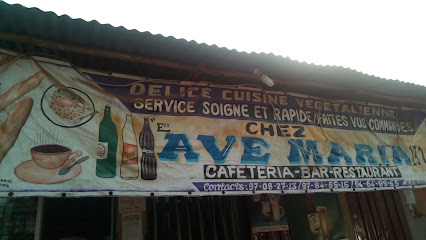
Cantine PTT Lokossa
Discover authentic Beninese cuisine at Cantine PTT in Lokossa – where every dish tells a story.
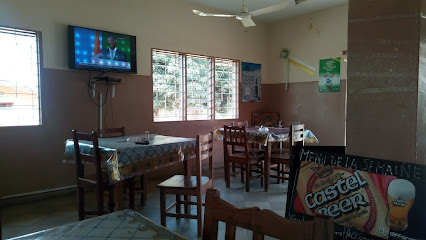
Restaurant Chez Valé (Ets Towou)
Discover authentic Beninese cuisine at Restaurant Chez Valé in Lokossa – where every meal tells a story.
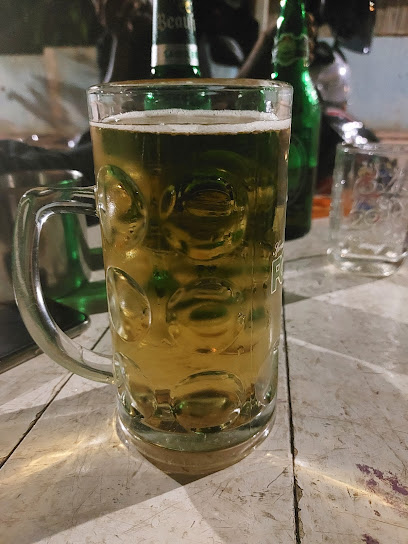
Restaurant chez Maman Lajoie
Experience the heart of Benin's culinary scene at Restaurant chez Maman Lajoie – where every dish tells a story.
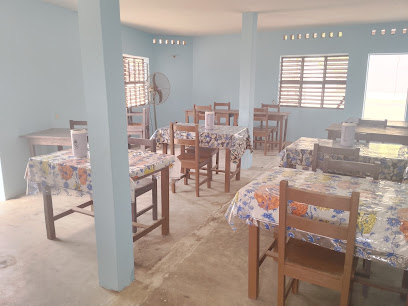
Markets, malls and hidden boutiques
Songhai Lokossa
Explore organic farming and sustainable produce at Songhai Lokossa, a unique shop in Lokossa, offering fresh, local goods for health-conscious tourists.
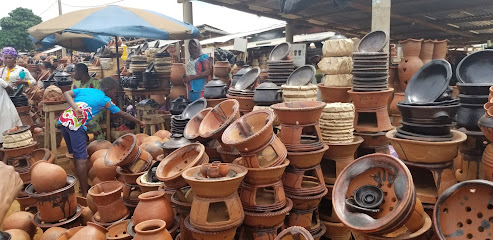
Supermarché CREDO
Explore the vibrant flavors of Lokossa at Supermarché CREDO, your one-stop-shop for local and international delicacies.
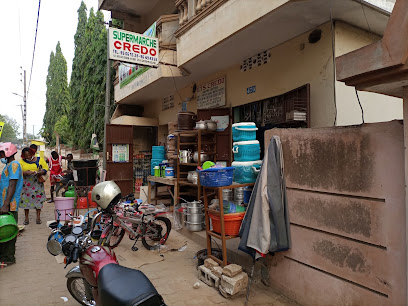
Pharmacie ZOGBEDJI
Discover Pharmacie ZOGBEDJI in Lokossa – A trusted pharmacy offering essential health products and expert advice for tourists.

Nouvelle Pharmacie Zogbédji
Discover health and wellness at Nouvelle Pharmacie Zogbédji in Lokossa, your go-to pharmacy for medications and expert advice.
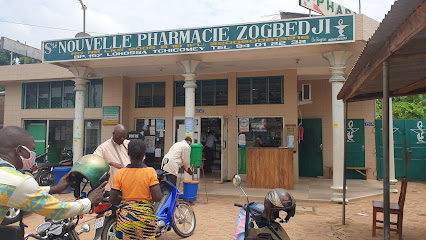
Boulangerie Betlehem
Discover the delightful flavors of Lokossa at Boulangerie Betlehem, where every bite is a taste of local tradition and culinary artistry.

Ets EXAUCE COUTURE
Explore the vibrant world of textiles at Ets EXAUCE COUTURE in Lokossa, where local craftsmanship meets cultural heritage.

Chez Daagan
Explore the vibrant world of sewing at Chez Daagan in Lokossa—where creativity meets culture in a delightful sewing shop.

Houin
Experience the vibrant coffee culture of Lokossa at Houin, where every cup tells a story and invites you to indulge in local flavors.

Cle de vie s. sitale
Explore cutting-edge technology at Cle de Vie S. Sitale in Lokossa, the ultimate destination for all your computer and tech accessory needs.
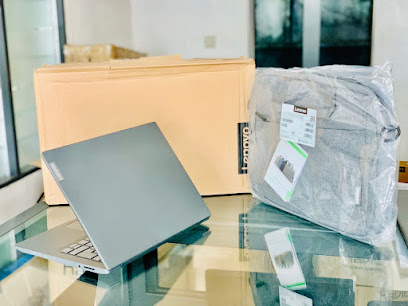
Pharmacie Ste Marie Reine de Lokossa
Discover the trusted Pharmacie Ste Marie Reine de Lokossa, ensuring your health and wellness while exploring the beautiful town of Lokossa.

ETS BLANDARME
Explore the vibrant ETS BLANDARME Shopping Mall in Lokossa, where culture, shopping, and local cuisine come together for an unforgettable experience.

FRIGO LA MERVEILLE
Discover Frigo La Merveille: Lokossa's vibrant hub for unique household appliances and local culture.

Boutique Dah Sodjo LOKOSSA
Explore the enchanting Boutique Dah Sodjo in Lokossa, where spirituality meets culture with unique metaphysical supplies and artifacts.
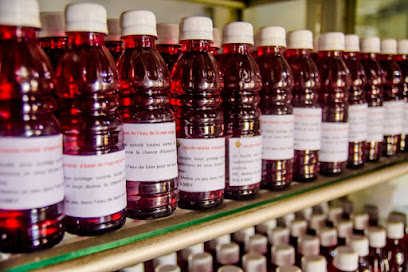
Espace Vert Sarl
Discover the vibrant shopping experience at Espace Vert Sarl in Lokossa, where local culture meets modern retail.

Sous l'Eternel couture
Explore the vibrant world of local fashion at Sous l'Eternel Couture in Lokossa, where traditional craftsmanship meets modern style.

Essential bars & hidden hideouts
Bar Restaurant Chez Adjovi
Experience the authentic flavors of Benin at Bar Restaurant Chez Adjovi, a must-visit dining spot in Lokossa for an unforgettable culinary adventure.
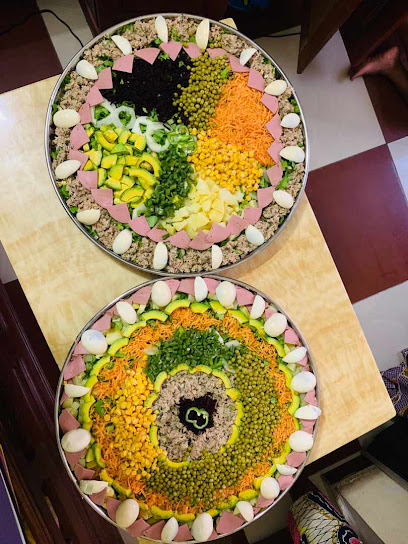
Bar Privilège
Discover the vibrant nightlife at Bar Privilège in Lokossa, where local culture meets refreshing drinks and live music for an unforgettable experience.
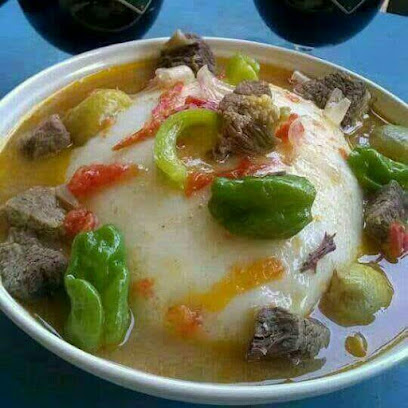
Restaurant Bar VIP R - Gratias
Experience the authentic flavors of Benin at Restaurant Bar VIP R - Gratias, a culinary gem in Lokossa offering affordable dining with a local touch.
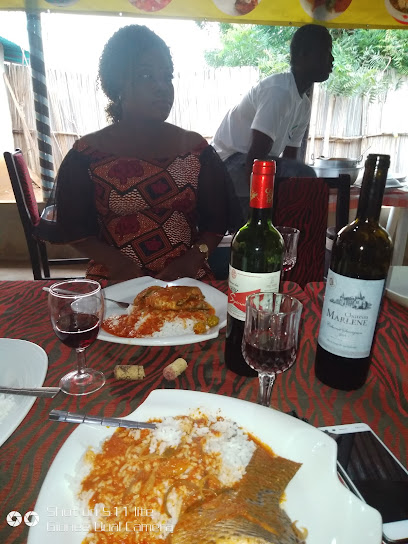
Maquis La Cave du Coin
Experience the vibrant flavors of Lokossa at Maquis La Cave du Coin, a culinary haven offering authentic Beninese dishes in a welcoming atmosphere.
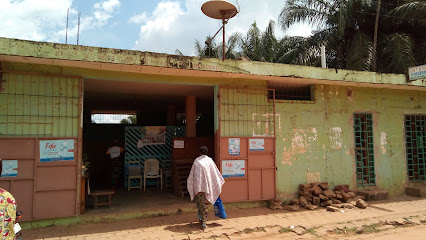
Valet de Joie
Experience the vibrant nightlife at Valet de Joie, a lively bar in Lokossa offering a diverse drink menu and a welcoming atmosphere.
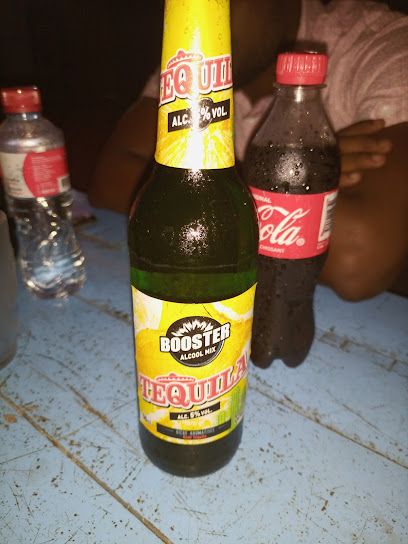
Restaurant QG Lokossa
Discover the vibrant nightlife and friendly atmosphere at Restaurant QG Lokossa, a gathering place for locals and tourists alike.
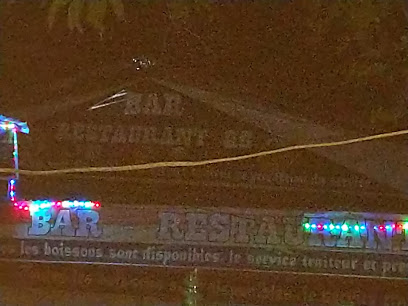
Divine Dimension
Experience the vibrant energy of Divine Dimension, Lokossa's premier bar, where local culture meets an unforgettable nightlife experience.

Bar Restaurant La Cachette
Experience the authentic tastes of Lokossa at Bar Restaurant La Cachette, where local flavors meet a vibrant atmosphere.
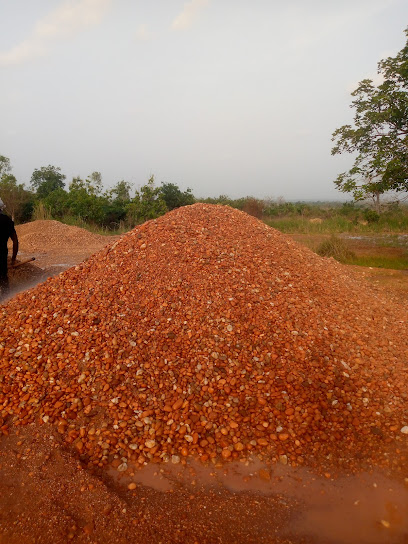
Restaurant Mme SOSSI
Experience the authentic tastes of Lokossa at Restaurant Mme SOSSI, a culinary gem offering traditional Beninese dishes in a welcoming atmosphere.
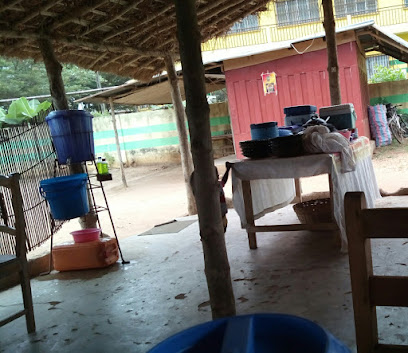
H4 LOKOSSA
Experience the vibrant atmosphere of H4 Lokossa, a bar that blends local culture with refreshing drinks in the heart of Lokossa, Benin.
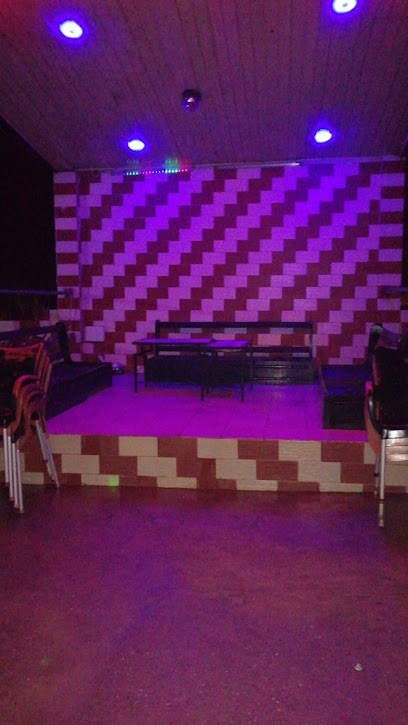
Ets Bar Restaurant BIOVA
Discover the authentic tastes of Benin at Ets Bar Restaurant BIOVA, a welcoming culinary haven in Lokossa.
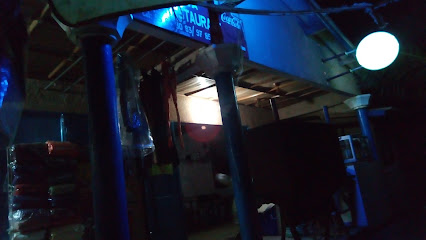
Maquis Chez Valé
Discover the authenticity of Beninese cuisine at Maquis Chez Valé, a vibrant bar in Lokossa that embodies local culture and culinary delights.
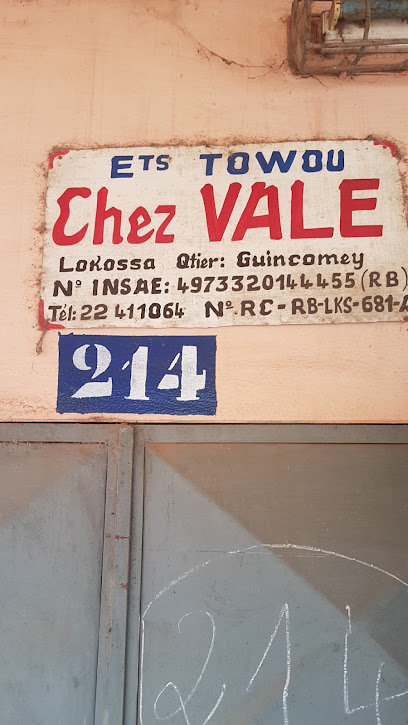
BAR DIEUDONNE CHEZ KOKOUTO
Discover the lively ambiance and local flavors at Bar Dieudonne Chez Kokouto, a must-visit bar in Lokossa for tourists seeking authentic experiences.

Lokossa bar climent
Experience the lively atmosphere of Lokossa Bar Climent, where local culture meets vibrant nightlife for an unforgettable evening.

Local Phrases
-
- HelloKuabo
[Kwah-boh] - GoodbyeKpè
[Kpeh] - YesWé
[Way] - NoInon
[Ee-non] - Please/You're welcomeMèsi
[Meh-see] - Thank youMèsi
[Meh-see] - Excuse me/SorryVèvè
[Veh-veh] - How are you?Kankpè
[Kahn-kpeh] - Fine. And you?Yan kpè. Owan?
[Yahn kpeh. Oh-wahn?] - Do you speak English?Wé gbè Anglé?
[Way geh ahn-glay?] - I don't understandInon kpè
[Ee-non kpeh]
- HelloKuabo
-
- I'd like to see the menu, pleaseN mi xé meni, mèsi
[N mee zeh meh-nee, meh-see] - I don't eat meatIn mi kou viande
[Een mee koh vee-ahn-deh] - Cheers!Ayo!
[Ah-yoh!] - I would like to pay, pleaseN mi xé pè, mèsi
[N mee zeh peh, meh-see]
- I'd like to see the menu, pleaseN mi xé meni, mèsi
-
- Help!Aidé!
[Ay-day!] - Go away!Alé!
[Ah-lay!] - Call the Police!Apelé la Police!
[Ah-peh-lay lah Poh-lees!] - Call a doctor!Apelé un médecin!
[Ah-peh-lay oon meh-deh-sahn!] - I'm lostN mi pèdu
[N mee peh-doo] - I'm illN mi malad
[N mee mah-lahd]
- Help!Aidé!
-
- I'd like to buy...N mi xé acheté...
[N mee zeh ah-sheh-tay...] - I'm just lookingN mi zin
[N mee zin] - How much is it?Combien ça coute?
[Kohm-byen sah koot?] - That's too expensiveSa coute trop
[Sah koot trop] - Can you lower the price?Pouvez-vous baisser le prix?
[Poo-veh voo bay-say luh pree?]
- I'd like to buy...N mi xé acheté...
-
- What time is it?Ki lè?
[Kee leh?] - It's one o'clockIl est une heure
[Eel eh oon uhr] - Half past (10)Demi (10)
[Day-mee (dix)] - MorningMatin
[Mah-tahn] - AfternoonAprès-midi
[Ah-pray mee-dee] - EveningSoir
[Swah] - YesterdayHier
[Yehr] - TodayAujourd'hui
[O-zhoor-dwee] - TomorrowDemain
[Deh-mahn] - 1Un
[Oon] - 2Deux
[Duh] - 3Trois
[Twa] - 4Quatre
[Kah-truh] - 5Cinq
[Sank] - 6Six
[Sees] - 7Sept
[Set] - 8Huit
[Weet] - 9Neuf
[Nuhf] - 10Dix
[Dees]
- What time is it?Ki lè?
-
- Where's a/the...?Où est le/la...?
[Oo eh luh/lah...?] - What's the address?Quelle est l'adresse?
[Kell eh lah-dress?] - Can you show me (on the map)?Pouvez-vous me montrer (sur la carte)?
[Poo-veh voo muh-moh-tray (soor lah kart)?] - When's the next (bus)?Quand est le prochain (bus)?
[Kahn eh luh proh-shahn (boos)?] - A ticket (to ....)Un billet (pour ....)
[Oon bee-yay (poor ....)]
- Where's a/the...?Où est le/la...?
History of Lokossa
-
Lokossa, nestled in the Mono Department of Benin, has a rich history that dates back centuries. The area was initially occupied by various indigenous tribes, who were attracted to the region's fertile land and abundant natural resources. These early settlers established small agricultural communities, laying the foundation for the town's growth.
-
During the late 19th and early 20th centuries, Lokossa became part of French Dahomey, a colony of France. The French colonial administration significantly influenced the town's development, introducing Western education, infrastructure, and administrative systems. This period also saw the construction of several colonial buildings and the establishment of trade routes that connected Lokossa to other parts of Benin.
-
Benin gained independence from France on August 1, 1960, and Lokossa, like many other towns, embarked on a journey of self-determination and development. The town saw significant investments in education, healthcare, and infrastructure. This era also marked the rise of local political figures and the strengthening of traditional cultural practices.
-
Lokossa is renowned for its vibrant cultural heritage, which is a blend of indigenous traditions and influences from the colonial period. The town is known for its colorful festivals, traditional music, and dance. The annual 'Fête de la Gani' is a particularly notable event that showcases the rich cultural tapestry of Lokossa, attracting visitors from across the country.
-
In recent decades, Lokossa has experienced significant economic growth and modernization. The town has developed into a commercial hub, with thriving markets and businesses. Agriculture remains a vital part of the local economy, with palm oil, maize, and cassava being the primary crops. Additionally, investments in education and technology have positioned Lokossa as a forward-looking community poised for future growth.
-
Lokossa boasts several notable landmarks and sites that reflect its historical and cultural significance. The Mono River, which flows near the town, is a vital waterway that has supported local agriculture and trade for centuries. The town is also home to several historical buildings, including the old colonial administrative offices and traditional palaces, which offer a glimpse into Lokossa's past.
Lokossa Essentials
-
Lokossa is located in southwestern Benin. The nearest international airport is Cotonou Cadjehoun Airport in Cotonou, approximately 100 kilometers away. From Cotonou, you can take a bus, taxi, or rent a car to reach Lokossa. The journey typically takes around 2 to 3 hours by road. There are also shared taxis and minibuses (known locally as 'zemidjans') that connect Cotonou to Lokossa.
-
Lokossa is a relatively small city, and many of its attractions are within walking distance. Zemidjans (motorcycle taxis) are a popular and inexpensive way to get around the city. For longer trips, local taxis are available. There are also buses and shared taxis that connect Lokossa to nearby towns and cities. Renting a car can be an option for exploring the surrounding areas, but be prepared for varying road conditions.
-
The official currency in Benin is the West African CFA franc (XOF). Credit cards are not widely accepted, so it is advisable to carry cash. ATMs are available in Lokossa, but it is wise to withdraw sufficient cash in Cotonou before traveling to ensure you have enough funds. Local markets and smaller establishments typically only accept cash.
-
Lokossa is generally considered safe for tourists. However, it is advisable to take standard precautions. Avoid walking alone at night in unfamiliar areas and keep an eye on your belongings in crowded places. While there are no specific high-crime areas in Lokossa that target tourists, it is always best to stay vigilant and aware of your surroundings.
-
In case of emergency, dial 117 for police assistance and 118 for medical emergencies. There are local police stations and medical facilities available in Lokossa. It is recommended to have travel insurance that covers medical emergencies. For minor health issues, there are pharmacies in the city where you can purchase over-the-counter medications.
-
Fashion: Do dress modestly, especially when visiting religious sites. Avoid wearing revealing clothing. Religion: Do respect local customs and traditions. Always ask for permission before taking photos of people or religious sites. Public Transport: Do be respectful and give up your seat to elderly passengers. Don't eat or drink on public transport. Greetings: Do greet people with a handshake or a slight nod. It is customary to greet elders with a bow. Eating & Drinking: Do try local delicacies and accept food offerings graciously. Don't refuse hospitality, as it is considered impolite.
-
To experience Lokossa like a local, visit the local markets where you can buy fresh produce and traditional Beninese goods. Engage with locals, as they are often friendly and willing to share stories about the city's history and culture. Don't miss exploring the Mono River, which offers beautiful scenery and opportunities for boat rides. For a unique cultural experience, attend local festivals and events that showcase traditional music, dance, and crafts.
Nearby Cities to Lokossa
-
Things To Do in Aneho
-
Things To Do in Ouidah
-
Things To Do in Notse
-
Things To Do in Lomé
-
Things To Do in Cotonou
-
Things To Do in Porto-Novo
-
Things To Do in Atakpamé
-
Things To Do in Kpalimé
-
Things To Do in Ho
-
Things To Do in Lagos
-
Things To Do in Abeokuta
-
Things To Do in Koforidua
-
Things To Do in Accra
-
Things To Do in Ibadan
-
Things To Do in Kumasi







